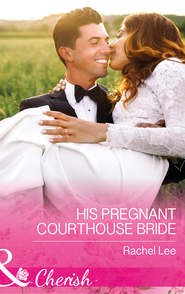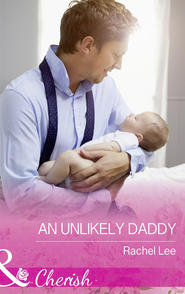По всем вопросам обращайтесь на: info@litportal.ru
(©) 2003-2025.
✖
With Malice
Автор
Год написания книги
2018
Настройки чтения
Размер шрифта
Высота строк
Поля
“It was bound to happen.” Art’s wife had left him just over a year ago, and his pain was a palpable thing, even though he never referred to Elizabeth in any other way than as his ex. “So yes, I’ve got the girls for a few months. I can’t tell you how grateful I am for that.”
“I can imagine.”
Art nodded, then smiled. “We should be grateful for our blessings as they come. Now, what can I do to help you out?”
“This is going to be hell for the girls. They need a few days to adapt, but then they’re going to need to get back in school. And I don’t know how long it’ll be before they’ll give me the house back. Or how long it’ll take to…” He couldn’t speak the words. They stuck in his throat.
“They’re welcome to stay with us, Grant. They’ve always been welcome. You know you don’t need to ask.”
“I know, Art. It shouldn’t be for long. I hate to impose.”
Art took his hand firmly. “Grant, we’ve been neighbors for ten years. You’re not imposing. I’d be glad to help, and you know Lucy and Jessie love your daughters like sisters.”
Grant managed a chuckle. “And they fight like sisters.”
“That’s part of the package,” Art said, smiling. “It’s not a problem. Really. That’s what friends do.”
“You’re good people,” Grant said. “Look, I need to get back home. I’ll call you when I think the girls are ready to get back to school.”
“We’ll look forward to it,” Art said. “Take care of your family.”
Grant looked up into a graceful live oak, as if trying to divine the secrets of the universe from its gnarled limbs. “I don’t know if it’s a matter of me taking care of them or them taking care of me.”
Art clapped a hand on his shoulder. “I know, Grant. I know. Get on home to them.”
“Thanks, Art.”
“A friend?” Karen asked when he returned to the car.
“A friend.”
“You seem to make close friends, Senator.”
He studied her eyes for portents of an ulterior motive but saw none. “I do, I guess. In the end, what else is there but those we love and the memories we make with them?”
She nodded, glancing toward Art Wallace as he walked back around a copse of trees toward his house. “That’s a beautiful sentiment, Senator. Do you ever disagree with any of your friends?”
“What are you suggesting?”
Those clear gray eyes of hers returned to him. “I just wondered if you ever had any disagreements with your neighbors. People are human, after all. This neighborhood can’t be Eden before the fall.”
“No, it’s not. Of course we don’t all see eye-to-eye on everything. Fortunately, we’re all too civilized to get nasty about it.”
She nodded. “What kinds of things do you disagree about?”
He gave her a crooked smile. “Politics, mainly. Given my position, I’m a lightning rod for such discussions. But they’re my constituents, too, so I listen. Matt Witherspoon, across the street, cordially dislikes my position on gun control. I have no doubt he votes against me.”
She nodded. “And the guy you just talked to?”
Now a look of faint amusement brightened his gaze, momentarily erasing his grief. “Art? Art and I have been close friends for about ten years now. It doesn’t bother me in the least that he volunteers for Randall Youngblood.”
“Youngblood?”
“The head of the cane growers’ association. He’s lobbying against my environmental bill.”
“And your neighbor volunteers for him?”
“Why not? It’s his constitutional right to oppose legislation.” He cocked his head. “You know, Detective, it’s entirely possible for gentlemen to disagree and still be friends. In fact, I don’t believe Congress has settled legislation at gunpoint once in its entire history.”
Her face revealed nothing. “It’s my job to ask these questions.”
He felt a twinge of embarrassment. “Of course it is. I’m sorry. It’s just that I’ve never had a disagreement with any of my neighbors that’s even reached the level of raised voices.”
She nodded, still expressionless.
“Thank you for your help, Detective.”
“It’s my job, Senator. I’ll keep you posted.”
He drove away, headed back to grief, but for the moment feeling only shame at his overreaction to Detective Sweeney’s questions. He usually displayed more self-control than that.
But there had been enough ugliness in the last twenty-four hours, and he was damned if he was going to start suspecting everyone he knew.
At least not until he had evidence.
6
After the senator disappeared down the street, Karen decided it might be a good time to try to interview the neighbors again. This morning, by the time she’d sent some uniforms around to ask questions, everybody appeared to have gone off to work. Or maybe they weren’t answering their doors. But now it was late afternoon, and surely some of them would be home.
Unfortunately, most still weren’t. She worked her way up and down the street, and managed to talk to only two women, both of whom denied having seen or heard a thing. That left the senator’s next-door friend, the guy who said he’d heard a car. He’d been gone, too, when they’d gotten around to trying to question him.
But he was home now, and he invited her inside pleasantly. He even offered her a cup of coffee. Ordinarily she would have declined, but she decided instead to accept, wanting to make this interview as comfortable and friendly as possible in the hope that this friend of the senator’s would relax enough to grow chatty.
As he gave her a mug of coffee and sat facing her across the coffee table between two sofas, he said, “I suppose you want to know if I know anything more about that car I heard last night.”
“That’s one of the things, yes. Delicious coffee.”
He beamed. “I can’t take credit for that. It’s a Starbucks blend.”
Of course. Starbucks. In this neighborhood she was rather surprised it wasn’t something even more exotic. “Well, you brewed it perfectly,” she said, and smiled.
“Thank you.” He managed a look of embarrassed pleasure to perfection. She found herself wondering if it was real or practiced. Then she chided herself for being unnecessarily suspicious.
“But about the car,” he said. “I’m not sure it had anything to do with what happened to Abby.” His lips trembled a bit at the outer corners, and he paused a moment, clearly gathering himself. “I mean, how would I know?”
“Of course you don’t know,” she said reassuringly. “But I have to follow every possible lead.”
“Of course.” He nodded and put his own coffee mug on a coaster on the highly polished table. “Well, I don’t really know anything except what I told you. I think it was about one o’clock. I seem to remember glancing at the digital clock on the headboard. Anyway, I can’t be certain of the exact time.”











